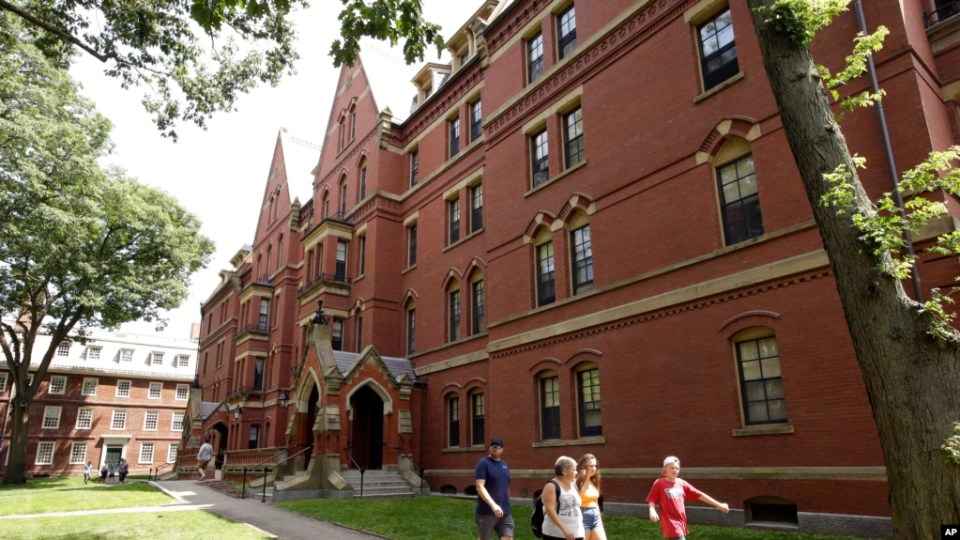
Harvard Attempts To Reckon With Historical Ties To Slavery In New Report
The university will establish a $100 million fund to actively address the impacts of slavery that it benefitted from in Harvard’s earliest years.
Nearly 80 Harvard University leaders, donors and staff members had owned enslaved people until slavery remained legal in Massachusetts in 1783, according to a report the university released Tuesday.
Written by members of a committee authorized by university President Lawrence Bacow, the 134-page report includes seven recommendations “to remedy the persistent educational and social harms that human bondage caused to descendants, to the campus community, and to surrounding cities, the Commonwealth, and the nation,” according to the report.
The suggestions include developing educational partnerships with historically Black colleges and universities, along with honoring enslaved people by investing in future generations of Black scholars.
The report is an extension of the Presidential Initiative on Harvard and the Legacy of Slavery, which Bacow established in 2019 with a mission of diving deep into the impact of slavery and its relationship to society’s present challenges rooted in racism. The university also appointed a committee chaired by Martha Minow, former dean of Harvard Law School, to move recommendations into action and committed $100 million to fund its initiative.

“The legacy of slavery, including the persistence of both overt and subtle discrimination against people of color, continues to influence the world in the form of disparities in education, health, wealth, income, social mobility, and almost any other metric we might use to measure equality,” Bacow said in a statement. “Consequently, I believe we bear a moral responsibility to do what we can to address the persistent corrosive effects of those historical practices on individuals, on Harvard, and on our society.”
Harvard’s report revealed dozens of individuals — including five of the university’s previous presidents — enslaved African and Indigenous people, according to city vital records, wills and other documents.
In recent years, several other colleges have started reckoning with their ties to slavery and indentured servitude. The University of Mississippi and Georgetown University revealed that they benefited from slave labor, while Brown University students voted in March 2021 for the institution to offer reparations to descendants of enslaved laborers. Columbia University also publicly marked its ties to slavery by adding historical markers to four of its residence halls, including Furnald Hall — which was home to Frederick Wells, the first Black student to live on campus and who was harassed by Ku Klux Klan members.
While reviewing Harvard’s history of slavery may be troubling, Bacow said, he strongly encouraged all students, faculty, and other members of the university community to read the report.
“Many of you will find it disturbing and even shocking,” Bacow said. “Many of you may also be disappointed in learning painful truths about the history of an institution that you have come to know, respect, and even love. But the Harvard that I have known, while far from perfect, has always tried to be better—to bring our lived experience ever closer to our high ideals. In releasing this report and committing ourselves to follow through on its recommendations, we continue a long tradition of embracing the challenges before us. That, too, is a vital part of our history.”

